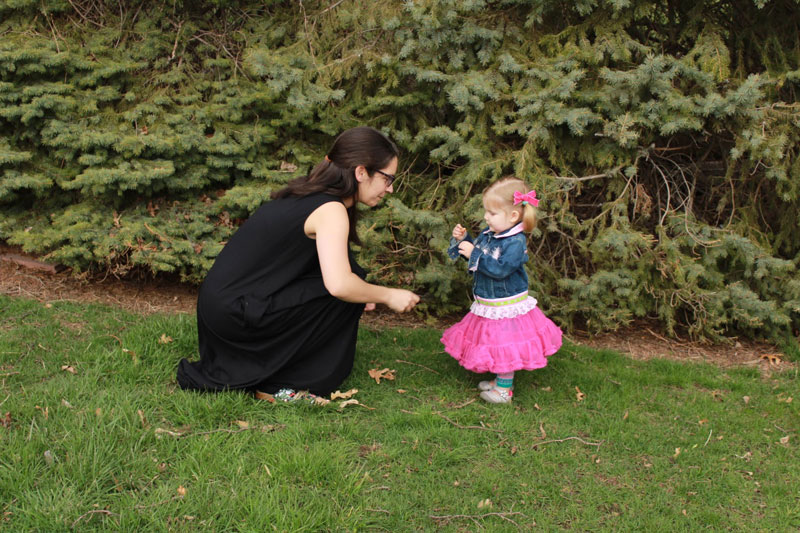A GUIDE TO BREASTFEEDING (AND HOW I MADE IT SO LONG)
You have a new baby (or one on the way)! Congratulations!
There are so many decisions to make – perhaps the most debated of all; breastfeeding.
If you are planning on breastfeeding or just started, and you want to be prepared to succeed, this post is for you. Over the course of nursing both of my girls and more than 40 combined months of breastfeeding, I have learned a lot of things and got better with each passing day of our journey.
Even if this is your first time being a mom, you may not realize that whatever other “jobs” you’ve held up to this point have actually prepared you for the days ahead! So let’s approach this new position as a breastfeeding mom as if it were a new job.


What do you need to be prepared for this job?
1. Invest in a uniform. If your contract required you to dress business casual, would you wear sweats to work? If you are a nurse, don’t you wear scrubs? If you worked in construction, wouldn’t you wear a helmet to protect yourself? You can be so much more successful at breastfeeding over time if your wardrobe includes staple items that make breastfeeding quick and convenient, especially when you’re on the go. Quality nursing bras, a lot of nursing camisoles, like this one , nursing tops that make you feel good about yourself and reflect your style, and at least a dress or two are my breastfeeding mom must-haves. These items can be pricey, and it may seem more expensive than other clothing, but it’s not as overwhelming if you buy one item at a time, just as you would to build any other kind of wardrobe. Include some nursing items on your baby registry and ask for nursing clothes for Christmas, your birthday or Mother’s Day. Feeling good about how you look and making your life easier is the best gift you can give yourself!
2. Practice your skills. There are two specific things you should practice: First, sit in front of a mirror and watch yourself breastfeed. When I did this for the first time, and I realized how little my breasts were exposed and visible, I immediately felt less self-conscious breastfeeding in public. Prior to that, I was really struggling with trying to stay covered up while latching on a newborn. I would go out to dinner with my family, and I was anxious and feeling like a failure only because I was making it harder on myself than it needed to be. But when I shifted my focus to properly helping my baby latch, and I stopped worrying about staying covered up, she could latch so much more quickly and we were both much happier! Secondly, practice breastfeeding in a carrier. This requires first, figuring out which carrier you and baby are most comfortable with. Once you get the hang of baby-wearing, look up videos on YouTube about how to breastfeed in whichever carrier you pick (stretchy wraps and soft structured carriers were my favorites for breastfeeding). There is more than one way to do it, so watch different methods, practice makes perfect, and figure out what works best for you. I can promise you this…the time you spend learning this skill is priceless. Just wait until the first time your baby starts crying in the grocery store when your cart is full of food. Breastfeeding in the checkout line? Game changer! It’s worth noting, it gets easier to breastfeed in a carrier as the baby gets older – like around 3 or 4 months old. But it’s totally possible with younger babies, too. They will just need more assistance latching and staying latched than an older baby (keep this in mind).
3. Be confident in yourself. Numbers 1 and 2 will help with this. But, you also have to decide to be okay with people judging you for breastfeeding, pumping, feeding your baby in public, stepping away from a party to pump, or whatever you have to do as time goes on. Do your research, ask questions when you need help (see numbers 4 and 5 below), be patient with yourself and your baby, and over time learn to trust yourself so you know how to take care of your baby better than the strangers (or well-meaning family members and friends) who try to convince you you’re doing it all wrong. Being a breastfeeding mom (and a mom in general!) requires developing a bit of a thick skin for the many, many times when you will be told that you should be raising your baby differently. But YOU are your baby’s Mom, not someone else! So, be confident in yourself, and breastfeeding will go much smoother for you and your baby.
4. Ask for help from people with experience. If you are struggling, ask your health care provider for advice, or seek out the opinion of a lactation consultant. I relied heavily on the lactation consultants in the hospital to get me off to the right start, and I wouldn’t have hesitated to seek their care outside of the hospital if I had any issues. I have friends who have found breastfeeding support groups so helpful, so be on the lookout for those also.
5. Make friends in your profession. My two best friends were breastfeeding champions! They were my best supporters, second only to my husband. Mom friends will know all the best breastfeeding products and hacks, and their experience and one-on-one advice will be better than any parenting book you could ever read. Even the best book about breastfeeding won’t listen to you complain or offer a shoulder to cry on, and sometimes that’s all you need. If you don’t have close mom friends, there are a lot of online support outlets – I received some amazing advice from “Working Moms Who Make Breastfeeding Work” on Facebook. The single greatest piece of breastfeeding advice I learned was from this group: teach yourself and anyone who will bottle feed your baby about paced feeding.
6. Make your job a priority. This tip will probably be the most controversial tip I will offer, but I’m sticking to it. Don't skip feedings, and don’t try to conform your baby to your own schedule when it comes to nursing. (Learning to nurse on-the-go will help with this, see numbers 1 and 2 above.) I may have gotten lucky to have had only very mild struggles with my milk supply, but I really do think it had a lot to do with not skipping feeds. If my husband fed our girls a bottle in the middle of the night, I would get up shortly thereafter to pump to keep my body caught up with the supply-and-demand cycle. If I went out without baby, I would either feed immediately before leaving and as soon as I arrived home, or else I brought my pump. In those first months when baby cluster fed, demanding my breast every 30 minutes, hour after hour, I let her. I set myself up with water, a snack, a charged phone, and the TV remote. And I reminded myself that this would all be over in the blink of an eye, and my endurance would pay off and make things easier in the long run. And it really did! I never supplemented with formula or had to spend money on milk-boosting supplements (beyond those that naturally occurred in foods, like some below in number 7). You should absolutely not feel bad if you need to use either of these things, but an ounce of prevention translates into many more ounces of breast milk! It wasn’t always easy, and sometimes I just wanted to give up. But my youngest is still only 2 years old, and that first year of breastfeeding feels like it flew by and was ages ago. And the second year was so much easier!
7. Make sure to take a lunch break. No, really. I know you’re so busy feeding your baby that you sometimes forget to feed yourself – but you burn more calories breastfeeding than you did when you were pregnant! So eat well, eat often, have snacks ready, and drink plenty of water. Get lots of fruits and veggies, but also make sure you get plenty of healthy fats. Also, don’t count calories while establishing a milk supply. You will naturally take off the baby weight by being active and eating a well-balanced diet. There’s no need to starve yourself (especially since it will very possibly decrease your milk supply). Learn to make lactation-friendly snacks like smoothies or cookies with oatmeal, flax seed, and Brewer’s Yeast, or you can buy some pre-made.






